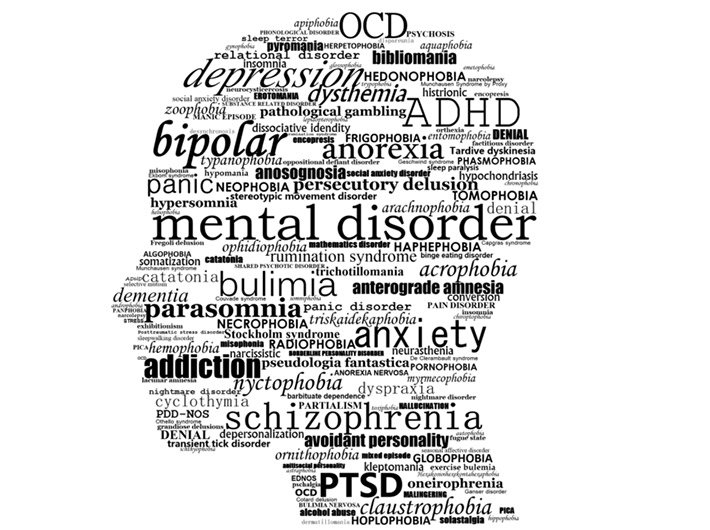Acknowledgement of the importance of mental health in the budget is also a prelude to the normalisation of conversation against the often socially tabooed mental health disorders
The Union Budget 2022-23 was introduced on February 1, near the end of the third wave of COVID-19 –and two years since the beginning of the pandemic and the mania brought with it. The pandemic accentuated difficulties in all sectors of the economy, and thus the budget was geared towards addressing those challenges. Amidst all the announcements, there was also a surprising mention of mental health, encompassing cognitive, behavioural and emotional well being. The finance minister acknowledged that the pandemic has highlighted the need for adequate mental health care, and to that end announced the launch of a ‘National Tele Mental Health Programme (NTMP)’ which will see the creation of 23 tele-mental health centres. We discuss in this article how this measure is a step in the right direction towards ensuring access to mental health services and further argue how technology could be incorporated in future policies to ensure *equitable* access to these services.
Social distancing, although critical to control the spread of the infection, leads to isolation along with reduced physical activity. Further, the anxiety, uncertainty and loss from the COVID-19 has been understandably shown to lead to worse mental health outcomes across the countries in the developing and the developed world alike. A 2021 Lancet study found that in India, the prevalence of depression and anxiety disorders has increased by 35%, during the COVID-19 pandemic. The statistics appear grimmer when we read the National Crime Record Bureau (NCRB) annual report, which describes how suicides in India increased by 10%, with nearly 400 people dying every day in 2020. Hence, given the wrath of COVID-19, NTMP was a much-needed step in the right direction. There are significant benefits of the telehealth services as the remote care note only eliminates contact and the risk of infection, but studies show that it has similar effects on depression and anxiety disorders as compared to the in-person facilities.
While access to such services is critical during COVID-19, it is equally important to discuss inequities in their access. Underserved populations like low-income groups or minorities are not just disproportionately impacted, but also have the lowest utilisation rates of the mental health services. For instance, research has also shown that marginalized populations have higher mortality rates, employment in essential and hence more risky jobs, which not only leads to more economic losses from COVID-19 but also have higher stress and anxiety. So how does one bridge the mental health services access gap?
One can start with personal mobile phones. In 2020, 54% of the Indian population had smartphones and is estimated to increase to 96% in 2040. Post COVID-19, mental health applications have introduced free membership and are shown to be effective towards reducing symptoms of depression and anxiety. For the population that is lacking access to smartphones, text messages can be delivered to individual phones. For instance, a texting service called HealthySMS was developed for the low-income Spanish population and showed high responsiveness from the participants.
Given that people from different genders, ages, languages, and technical abilities interact differently with the technology, there is a need to undertake distinctive interventions. For instance, developing an easier to navigate interface for a population that has limited exposure to smartphones, like, older people. In rural areas, health care staff could be trained to help people with low-tech skills to understand digital tools. Applications and text messages should be held up to a standard of a trained therapist, ensuring they follow the procedure with due safety and responsibility. Start-ups in the mental health space, especially the ones catering to the vulnerable population, should be incentivized, say, through tax benefits for the initial years. Further, these efforts will ensure that the tenets of the Mental Healthcare Bill, 2016 are fulfilled. For instance, the Bill guarantees the right to access mental health care and even free treatment for the vulnerable sections, i.e. people who are homeless or below poverty line (BPL).
India is still reeling from the after-effects of an acute health crisis, in which mental health services deserve special attention. While Budget 2022 was a first step towards this, policymakers should capitalise on harnessing technology as a medium to deliver mental health services on a wide scale. The digital tools should be developed in a manner that can be accessible, affordable, and also be appropriately utilised by individuals of varying socio-economic backgrounds and digital literacy. Incentives directed towards the development of such technology will ensure widespread and equitable access to mental health care services. Finally, acknowledgement of the importance of mental health in the budget is also a prelude to the normalisation of conversation against the often socially tabooed mental health disorders. This should encourage people to recognise and seek treatment, with the hope that the stigmatization towards mental health is eliminated in the long run.
Payal Seth is a PhD scholar, and Palakh Jain is an associate professor, at Bennett University.
